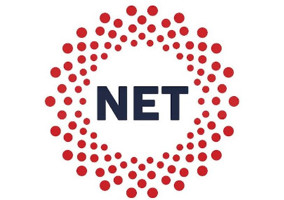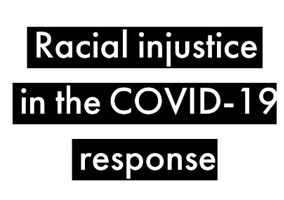When historians look back at 2020 I hope that they will reflect that two horrific events changed the course of history: coronavirus, which killed hundreds of thousands of people around the world and a disproportionate number of black, Asian and minority ethnic (BAME) people in the UK; and the murder of George Floyd, a black man, by the police in Minneapolis.
Two very different events, which, in different ways, shone a sharp light on the ills of early 21st century life. The common thread between the two being how systemically and institutionally people of colour are discriminated against, trodden down and murdered.
But rather than accept the system, people, communities and civil society used these events to rise up and be heard. To rise up and create vital systemic change. To rise up and force governments to begin to redress the inequalities deliberately built into many societies to benefit the pre-existing white, privileged elite.
But in order for historians to be able to look back in this way, we all need to act now. We need to do better than we did in 2008, when many saw the global financial crash as the turning point. In fact, governments have used the crash to plead lack of funds and embed austerity, reinforcing and exacerbating many pre-existing inequalities.
We all need to support the campaign for racial justice, most powerfully expressed by #BlackLivesMatter. We need to work with governments to ensure they #BuildBackBetter, and do not shirk their responsibilities to use this as an opportunity to tackle the pre-existing inequalities. We need to act in our personal and professional lives.
We need to say enough is enough in relation to disproportionate stop and search, disproportionate jail populations, disproportionately few senior charity sector BAME staff, disproportionately few BAME fundraisers. In the charity sector we need to engage with movements like #CharitySoWhite and the Grant Givers Movement, begin to better understand how our own personal and professional power and privilege have contributed to current inequalities, and commit to making equality, diversity and inclusion a reality not simply an aspiration.
We need to support our BAME colleagues, peers and friends. We need to make sure that this is the point in time that historians look back to as the time when real systemic change began to happen.
Peter Lewis is chief executive of the Chartered Institute of Fundraising, but writes here in a personal capacity
Related articles
Elizabeth Balgobin: The National Emergencies Trust and me
Elizabeth Balgobin explains why, despite well-documented challenges, she remains a member of the NET allocations committee, for now
#CharitySoWhite: Now is the time to tackle racial injustice in your charity's response to Covid-19
#CharitySoWhite warns that if charities put racial justice work on the backseat during the coronavirus crisis they will make it harder for the sector to help people most affected by the pandemic.












